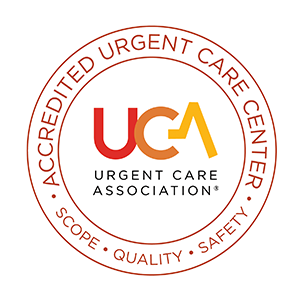EKGs Are Performed at Our Urgent Care Centers in Laredo, TX

An electrocardiogram (EKG) is a relatively simple, noninvasive diagnostic test that records the electrical activity of the heart at rest. With every heartbeat, an electrical impulse travels through the heart’s chambers, causing the heart muscle to contract and pump blood throughout the body.
EKG readings provide valuable information that can help a physician identify abnormal heart rhythms (arrhythmias), heart enlargement due to high blood pressure, blocked or narrowed arteries in the heart (coronary artery disease), and previous heart attacks. EKGs are performed on site at VitalMed Urgent Care in Laredo, Texas.
Who Should Have an EKG Test?
EKGs can play a vital role in preventing and diagnosing heart conditions in individuals who have certain symptoms, such as dizziness, heart palpitations, and a rapid pulse, or certain risk factors, such as:
- A personal or family history of heart disease or arrhythmias
- High blood pressure (hypertension)
- High cholesterol
- Diabetes
- A history of smoking
With that said, EKGs are generally not useful for people who do not have symptoms or risk factors. For this reason, an EKG test is usually not included as part of a routine physical examination.
What Does an EKG Test Involve?
EKGs are easily performed in our urgent care centers. If you’re having an EKG test, you’ll be asked to lie comfortably on a bed, and a medical professional will place approximately 15 soft, sticky pads (electrodes) on your chest, arms, and legs. Each electrode will be connected to a wire that transmits electrical impulse readings to a nearby monitor. During your EKG, you’ll be asked to remain as still as possible because movement can interfere with the reading. Within minutes, the EKG will record the electrical activity of your heart.
Our Services
You can receive any necessary EKGs*—along with other diagnostic tests and urgent care services—at VitalMed Urgent Care in Laredo, TX. Our goal is to help you get well and be well. If you’d like to learn more, contact us today.
*In the event of a life-threatening emergency, such as a suspected heart attack, we urge you to call 911 or go directly to the nearest hospital emergency room.


